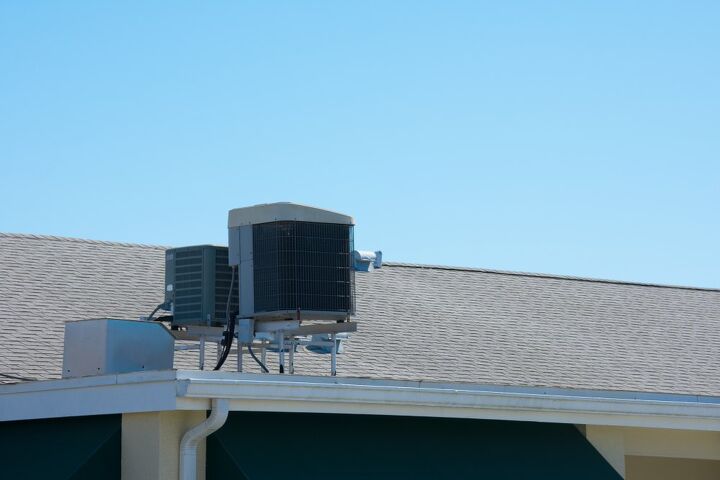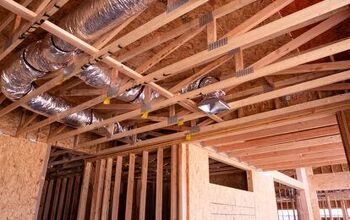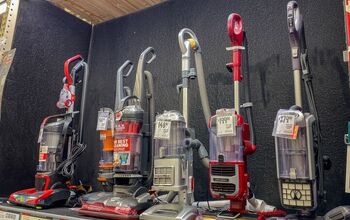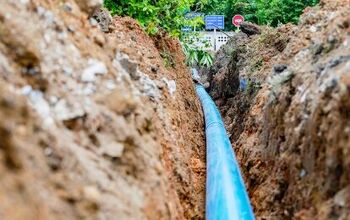Why Are AC Units On The Roof In Arizona?

If you’ve never been to Arizona before, you may be surprised to see air conditioning units on top of houses. This is a common practice in hotter climates, and you’ll also notice rooftop AC systems in New Mexico and Florida. But what’s the point in putting an air conditioning unit on the roof?
Arizona’s hot and dry climate requires AC systems with optimal ventilation and circulation, and rooftop units provide just that. Benefits of rooftop AC units include effective and efficient cooling, increased home equity, improved health, reduced noise, and more space. Although rooftop units are less likely to be stolen, they’re harder to camouflage and protect from the sun.
In this article, we’ll cover the three main types of air conditioning used in Arizona. We’ll also talk about whether AC units can be installed on the roof and why rooftop units are an excellent option. Finally, we’ll discuss regular maintenance for rooftop units and compare them to traditional ground-mounted units.
Don't want to do it yourself?
Get free, zero-commitment quotes from pro contractors near you.

What Kind Of AC Is Used In Arizona?
There are three main types of air conditioning systems used in Arizona. These types include a split system, central air conditioning system, and single-room air conditioners.
A split system has an exterior system that chills the air, plus an interior fan system that disperses the air. Central air conditioning pumps air through ductwork to cool the home. Meanwhile, a room air conditioner is typically placed in a window and cools a single room.
Can An AC Outdoor Unit Be Installed On The Roof?
Yes, you can install an AC outdoor unit on the roof. After installation, professionals route the system through ductwork to cool the entirety of the building. Generally, rooftop air conditioning systems are central rather than split systems.
Benefits Of Rooftop Air Conditioning Systems
There are several benefits to rooftop air conditioning systems. First, the conditioned air circulates quickly and easily throughout the home. Because of the way it is routed, the cool air rises to the warmer air. This way, the air conditioning system doesn’t have to work hard.
Effective And Efficient CoolingOwning a rooftop AC system means effectively cooling the home by circulating cool air and removing warm air. Plus, rooftop AC units are both cost-efficient and energy-efficient.
Increased Home EquityAnother huge advantage of rooftop AC units is that they increase home equity, especially in particularly warm climates. Homebuyers see a rooftop unit as an attractive element to have in a home.
Easy To RepairIt’s also easier to repair a rooftop unit than a non-rooftop air conditioning system. Non-rooftop systems typically have parts both inside and outside the house. Rooftop systems, however, are all in one location. This makes them easier to maintain and repair as needed.
Improved HealthAreas with hot, dry heat like Arizona have a lot of dust and dirt. A well-maintained rooftop air conditioning system circulates fresh air. This improves air quality and overall health.
Less NoiseYet another benefit to having a rooftop AC unit is the reduced noise. Because of its location, the system cannot be heard inside the home as much as a non-rooftop unit.
More SpaceDue to its location, this type of air conditioning system does not take up any indoor or outdoor living space.
Why Do Some Houses Have AC Units On The Roof?
Some areas with extremely hot climates, such as Arizona, have AC units on the roofs of houses. This is because the air conditioning systems require optimal ventilation and circulation. Situating the AC unit on the roof provides better ventilation and circulation and allows the air conditioning to work better.
In locations where the heat is especially hard to manage, placing the AC unit on the roof keeps homes cool. The cool air easily moves downward and circulates while removing warm air.
Necessary Maintenance For AC Units On The Roof
Like any air conditioning system, a rooftop AC unit requires regular maintenance. One method homeowners should use is to check how quickly their air conditioner can cool the warm air that rises to it.
Other checks that homeowners should do regularly are inspecting the outside of the system and regularly replacing its indoor filters. Cleaning the AC unit’s evaporator and condenser coils is also important.
A few other parts of regular maintenance include maintaining the unit’s inlet screen, inspecting the fan, and tightening the belt. Keeping up with these maintenance checks can increase the unit’s lifespan.
Is It Better To Have An AC Unit On The Roof Or On The Ground?
There are pros and cons to both options. A rooftop AC unit is a central air conditioning system, while a ground-mounted AC unit runs as a split system. A rooftop unit doesn’t take up any living space, while a ground-mounted unit usually takes up part of the yard.
As far as maintenance goes, ground-mounted units are generally easier to protect. They’re also easier to get to for routine maintenance. However, they’re more prone to invasion by pests and weeds.
It’s more common for ground-mounted AC units to be stolen than rooftop units because of their location. However, rooftop units aren’t as easy to camouflage and hide as ground-mounted units.
Don't want to do it yourself?
Get free, zero-commitment quotes from pro contractors near you.

Related Questions
Is it bad to have the AC unit on the roof?
It’s not inherently bad to have an AC unit on the roof. There are advantages and drawbacks to a rooftop AC unit. For example, one potential drawback is that the system will be more exposed to the heat of the sun.
Do air conditioners work in Arizona?
Yes, air conditioners do work in Arizona. Due to the climate, air conditioning is considered an essential need in Arizona. This means that all landlords must provide AC and fix it as needed.
How long does an AC unit last in Arizona?
How long an AC unit lasts in Arizona depends on how well the homeowner maintains it. Because of the hot climate, the average air conditioning unit can be expected to last 12 to 15 years. In many other parts of the United States, the average lifespan is longer, from 15 to 20 years.

With a lifelong passion for writing plus strong enthusiasm for home improvement and DIY projects, joining the team at Upgraded Home was an easy choice. Jessica Allen likes to share helpful information with current and aspiring homeowners. Aside from writing, Jessica loves doing yoga, playing the piano, and dabbling in graphic design.
More by Jessica Allen



























